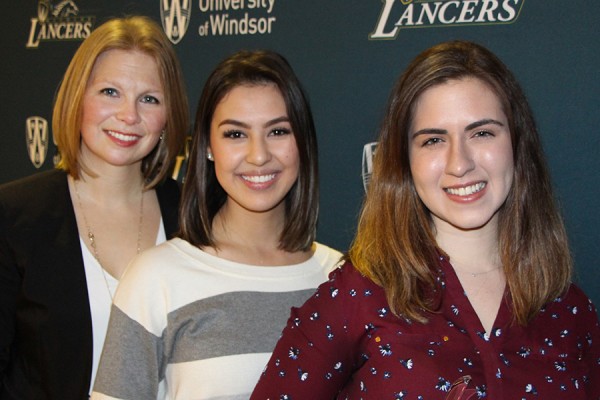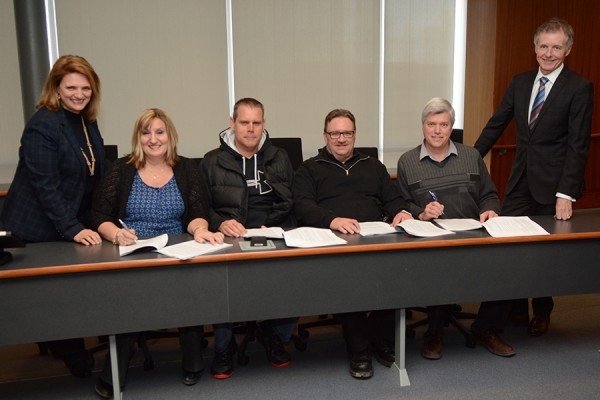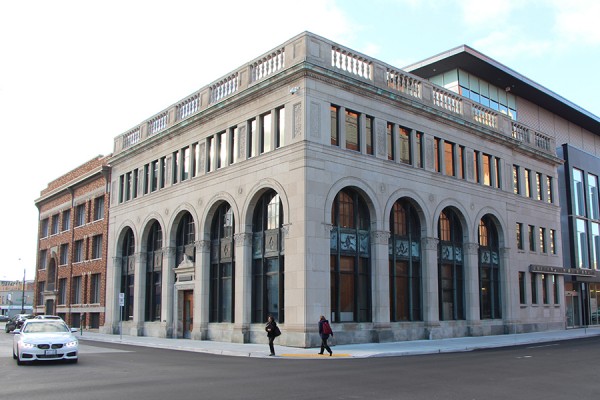A $100,000 gift announced Thursday will fund an inter-disciplinary team to research neurodegenerative diseases.
A donation from Joseph Szecsei, founder of Titan Tool and Die, and his wife Magdalena has created the Szecsei Parkinson and Neurodegenerative Disease Research Fund. Joseph Szecsei is living with Parkinson’s disease; the couple say they are thrilled to support research in their home city and look forward to outcomes that advance treatments.
“Living with advanced Parkinson’s has been one of the greatest challenges in my life,” says Joseph Szecsei. “The disease has robbed me of the many things I always enjoyed doing, mainly the use of my motor ability and the ability to use my hands to create.
“Both my family and I are looking forward to the day when there are more options for treatment and, of course, a cure.”
Led by professors Siyaram Pandey of chemistry and biochemistry and Jerome Cohen of psychology, the research team has already established a platform to study Alzheimer’s and Parkinson’s diseases and develop therapeutic interventions to block their progression. It operates under UWindsor’s Behaviour, Cognition and Neuroscience (BCN) program, a joint initiative of the Faculty of Science and the Faculty of Arts, Humanities and Social Sciences.
Chris Houser, dean of science, says the family’s generosity will make a difference to cutting-edge disease research at the University of Windsor and in the Windsor-Essex region.
“We appreciate the support of the Szecsei family and their creation of this fund,” says Dr. Houser. “Part of the university experience is to expose undergraduate and graduate students to research and provide the training required for them to be the scientists of tomorrow. The Szecsei Fund allows us to fulfil this promise and support research towards finding alternative treatments for these diseases.”
The research team has already published five research articles in peer-reviewed scientific journals and submitted a manuscript for publication. Dr. Pandey says a future objective is to evaluate the effects of natural health products in animal models of these diseases.
Marcello Guarini, dean of arts, humanities and social sciences, calls the BCN program a “fantastic” example of how multidisciplinary teams are able to analyze the behavioural and human elements of medical challenges and mysteries.
“With the support of this fund, we are hoping to make a meaningful impact on the lives of those living with these diseases in our community,” he says. “Without the support of philanthropic leaders like Joseph and Magdalena, it would not be possible for our researchers to continue this vital work. This project is a true partnership.”
 Sports information co-ordinator Elisa Mitton congratulates student staffers Alexandra Jean and Margherita Beaudoin, Lancer home events employees of the year.
Sports information co-ordinator Elisa Mitton congratulates student staffers Alexandra Jean and Margherita Beaudoin, Lancer home events employees of the year.





